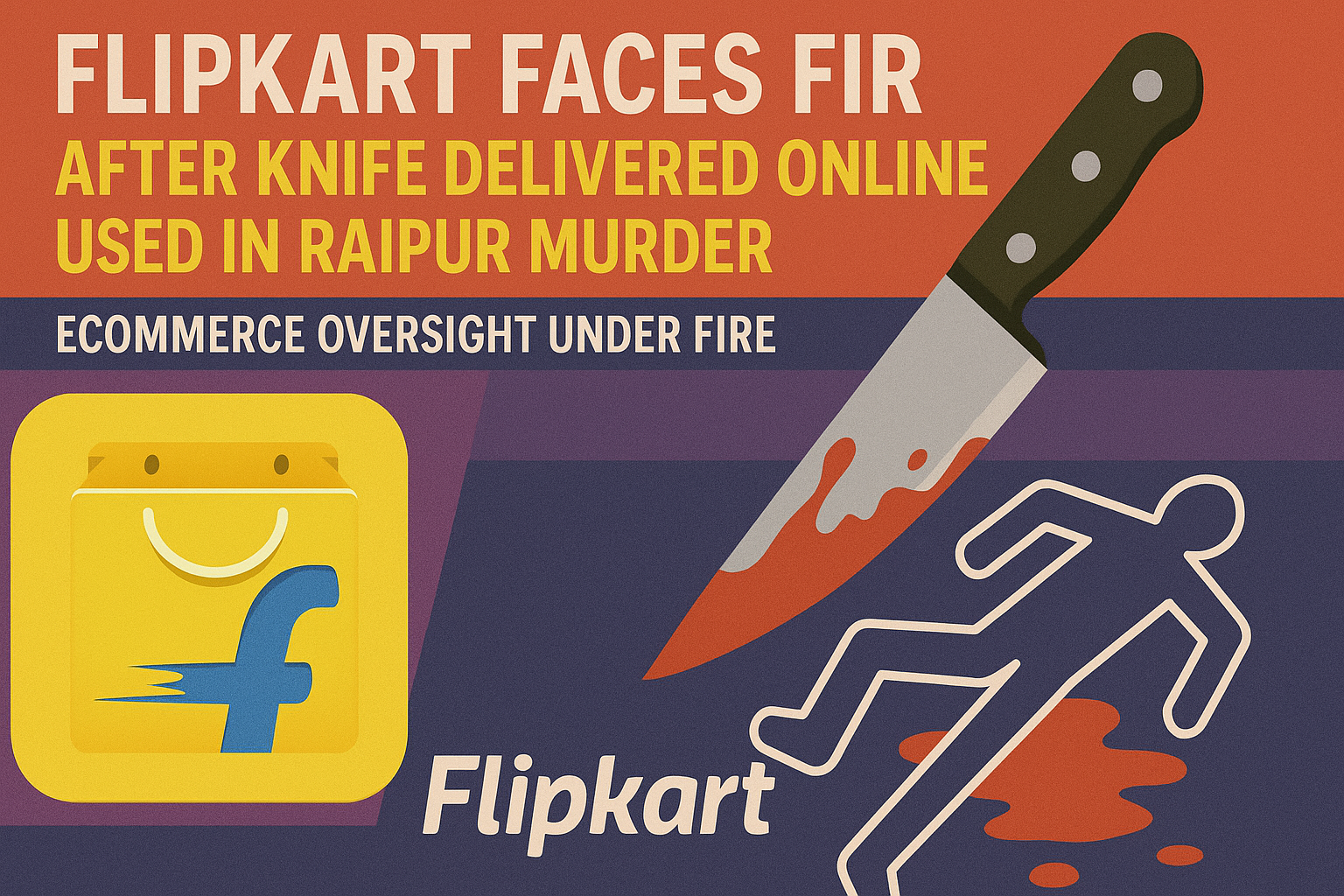A routine online purchase has turned into a national controversy as Chhattisgarh Police file a criminal case against Flipkart and its delivery partner Elastic Run, after a knife ordered via Flipkart was used in a fatal petrol pump robbery in Raipur.
A Robbery Turns Deadly in the Early Hours
A horrific robbery attempt at a petrol station in Mandir Hasaud, Raipur, on July 17 ended with the death of 26-year-old Yogesh Miri, a station employee, and left another worker critically injured. The attackers—identified as Sameer Tandon (21) and Kunal Tiwari (24)—used a sharp knife to carry out the assault and fled the scene before being captured within hours.
How an E-Commerce Order Became Evidence
Investigations revealed that the murder weapon was a knife delivered by Flipkart, ordered using Tiwari’s registered mobile number. The accused had also placed two additional knife orders, which were still en route at the time of their arrest. Police retrieved order records and delivery tracking information as part of the digital evidence.
Ignored Warnings Come Back to Haunt Flipkart
Despite prior written warnings from Raipur Police to e-commerce platforms, including Flipkart and Amazon, to restrict the sale and delivery of dangerous items like knives, the platforms allegedly continued fulfilling such orders. The authorities had specifically requested the platforms to enforce restrictions based on product type and delivery location.
This disregard led to the filing of an FIR under Sections 125(B) and 3(5) of the Bharatiya Nyaya Sanhita (BNS) and the Arms Act. Six individuals associated with Flipkart and Elastic Run—managers, logistics coordinators, and delivery agents—have been arrested so far.
Police Action Sends Shockwaves Across E-Commerce Sector
The case is being probed by a special task force under Raipur SSP Lal Umed Singh, with oversight from Additional SP Vivek Shukla. Investigators are reviewing Flipkart’s vendor policies, delivery processes, and compliance mechanisms. Sources confirm that more arrests and policy violations may emerge as the investigation progresses.
Public Safety vs. Online Convenience: The Bigger Question
This incident has reignited a broader discussion on the regulation of online marketplaces in India, especially for potentially lethal products. Consumer rights advocates and legal experts argue that platforms must implement stricter KYC checks, block deliveries to high-risk zones, and comply with regional police directives.
Platforms like Flipkart, Amazon, and others may now face tighter government scrutiny under the Ministry of Electronics and Information Technology (MeitY) and potentially revised e-commerce compliance norms.
Will This Be a Turning Point for Online Weapon Sales in India?
With e-commerce becoming a daily part of Indian life, the balance between fast delivery and public safety is being called into question. While Flipkart has not yet issued a public statement, legal experts believe this case could set a national precedent in determining platform responsibility for items sold online.
Conclusion
As the investigation continues, the Raipur murder case tied to a Flipkart delivery stands as a stark reminder of the risks associated with unregulated digital commerce. What began as a late-night robbery has now spiraled into a landmark case that could reshape India’s online retail laws and influence how e-commerce platforms operate in the future.


